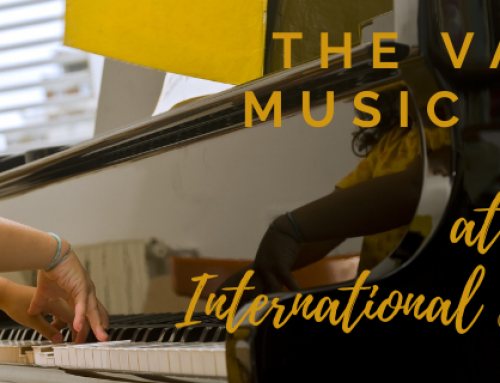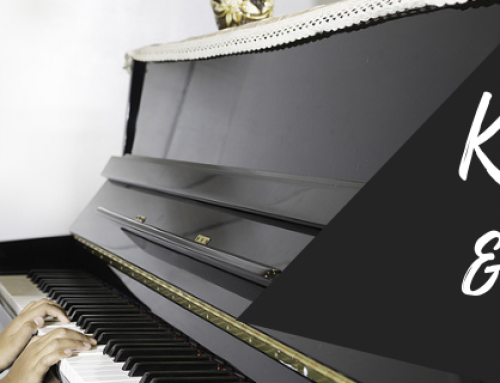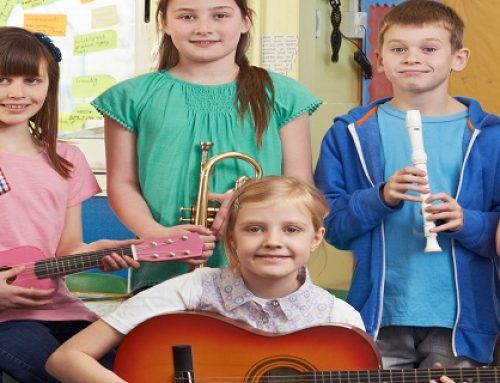Music is known for its artistic expression of feeling and emotions. Yet underneath the creative process of music making is the foundation for a successful individual. How can you tell? Many people continue to ask the question of what music students have that others don’t. Our children are incredibly creative and artistic individuals to begin with. Why are these traits important, and how can we nurture them to remain throughout adulthood? Here are 5 ways a musical foundation creates a successful adult:
Every child is an artist. The problem is how to remain an artist once we grow up.
– Pablo Picasso, 1881 – 1973
- Participating in Music Builds Self Esteem, Awareness, and Confidence
Education research shows us that kids who participate in musical instruction are more likely to have increased self esteem into adulthood. Such routines as regular performing and individual practice allow kids to clearly witness their own individual growth as they set and achieve personal goals. As music students see themselves progressing, they maintain those skills to achieve higher goals when they become adults.
Music is a subject that brings awareness of many topics to young people. Research from The National Association for Music Education (NAfME) through Chorus America found that “choral singers are far more likely to be involved in charity work, as volunteers and as donors (76%), than the average person (44% according to a 2001 report by Independent Sector). Choral singers are also more than twice as likely as non-participants to be aware of current events and involved in the political process”. By studying certain pieces of music, children are more highly aware of their world socially, economically, and politically, and continue to maintain that confidence and knowledge to become future leaders in whatever they set out to do.
- Music Enhances All Types of Reading Skills
Music teaches children how to respond to, and create sounds in order to communicate. Different pitches of high and low sounds as well as various rhythms are elements of music that make it a second language. Kids are able to echo and imitate those elements in order to produce their own sounds (or symphonies!) which enhance their memory functions and non-verbal language skills. Those enhanced functions are measured in education research through direct association with musical learning. Such skills are formed that enhance vocabulary, fine motor skills, and non-verbal cues that set them up for success as they transition into adults.
- And of Course, Math Skills
Musicians are using math skills all the time! Elements of rhythm such as beats and counting are essentially needed when playing or performing any type of music. Rhythm is the time and space of music, and when young children are able to learn complex rhythmic patterns, they are able to successfully translate their learning patterns into not only their math classes, but for higher end problem solving in their professional adult lives. Take a closer look at one of NAfME’s research examples following the boosted proficiencies of math and reading skills for a first grade class.
- Music Promotes Healthy Brain Development
Musical elements such as rhythm, notation, sounds, and fine motor skills are all developed in ways which organize the brain to approach other subjects similarly. Making music is a creative learning process, and children are able to retain the cognitive patterns they use to master musical skills to be successful in any academic area, and to exercise their emotional intelligence in its creative atmosphere.
- Studying Music Truly Boosts Academic Achievement
Regardless of the musical instrument or voice you take up, the learning patterns associated with math and reading skills are also used in music lessons which become absorbed into other academic areas. Students are seeing an increase in academic test scores while participating in music lessons. Further NAfME research relays numerous case studies supporting the correlations between musical learning and academic achievement, explaining how “students in high-quality school music programs score higher on standardized tests compared to students in schools with deficient music education programs, regardless of the socioeconomic level of the school or school district”. In music classes, students are learning completely new skills and concepts which enhances their overall IQ . It is incredibly beneficial for kids to have those higher proficiencies as a foundation to allow them to continually succeed both in and out of school.
So why study music if my child will not become a professional musician, what is the point?
The extended value of learning music is clear. By participating in music lessons, you are building discipline that excels across all other learning environments to promote the most successful, creative, and confident person. Such an individual will make an impact in school, in a high end profession as an adult, and all throughout their community.
No matter where you are in your musical journey, there’s always more to learn. For more great musician’s tips and information about music education, please visit our blog. And to learn more about the value of private music instruction, contact us at the International School of Music today!






